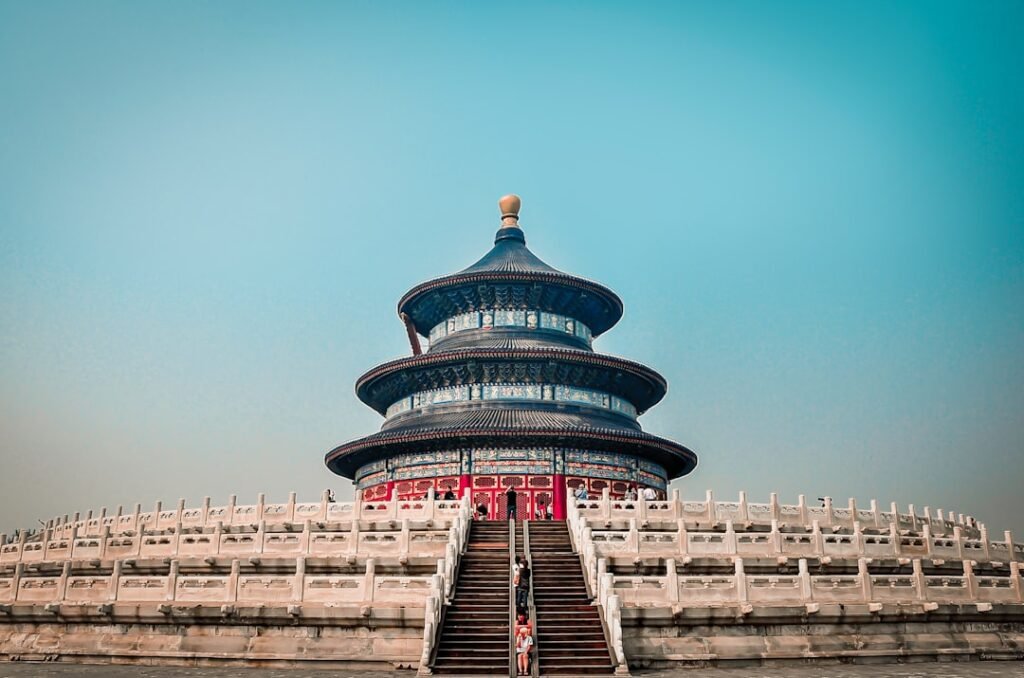

Essential Chinese Phrases for a Visit to the Doctor
Visiting a doctor in China can be a unique experience, especially for those who are unfamiliar with the healthcare system and cultural nuances. The country boasts a vast network of hospitals and clinics, ranging from large urban hospitals to smaller community health centres. Understanding how to navigate this system is essential for both locals and expatriates alike.
The healthcare system in China has undergone significant reforms in recent years, aiming to improve accessibility and quality of care. However, it can still be daunting for those who are not well-versed in the language or local customs. When seeking medical attention in China, it is crucial to be prepared for the differences in approach and practice compared to Western countries.
Traditional Chinese Medicine (TCM) often coexists with Western medical practices, leading to a diverse range of treatment options. Patients may encounter practitioners who incorporate herbal remedies, acupuncture, and other holistic methods alongside conventional treatments. This blend of practices can be both fascinating and overwhelming, making it essential for visitors to approach their healthcare experience with an open mind and a willingness to learn. Start learning Chinese at the NLS Norwegian Language School in Oslo now!
Table of Contents
ToggleSummary
- Visiting the doctor in China may require some cultural adjustments for foreigners.
- Common symptoms and ailments in China may differ from those in other countries.
- Making an appointment with a doctor in China may involve different procedures and waiting times.
- Describing symptoms and pain accurately is crucial for effective communication with a doctor in China.
- Understanding the doctor’s instructions and following up on aftercare are important for successful treatment in China.
Common Symptoms and Ailments
In China, as in any other country, individuals may experience a variety of common symptoms and ailments that necessitate a visit to the doctor. Respiratory issues, such as colds and flu, are prevalent, particularly during the winter months when air quality can deteriorate. Allergies, often exacerbated by pollution and seasonal changes, are also common complaints among both locals and expatriates.
Gastrointestinal problems, including food poisoning or digestive discomfort, frequently arise due to the diverse culinary landscape and varying hygiene standards. Moreover, stress-related conditions have become increasingly recognised in urban areas where fast-paced lifestyles prevail. Headaches, fatigue, and anxiety are symptoms that many individuals may report during their consultations.
Understanding these common ailments can help patients articulate their concerns more effectively when visiting a healthcare provider. It is also beneficial to be aware of the local prevalence of certain conditions, as this knowledge can guide discussions with medical professionals.
Making an Appointment

Making an appointment to see a doctor in China can vary depending on the type of facility one chooses. In larger cities, many hospitals offer online booking systems that allow patients to schedule appointments conveniently through their websites or mobile applications. This modern approach streamlines the process and reduces waiting times significantly.
However, for those who prefer a more traditional method, visiting the hospital in person is still an option. It is advisable to arrive early, as queues can be long, especially at popular facilities. When making an appointment, it is essential to have some basic information ready, such as your identification card or passport number and a brief description of your symptoms.
In some cases, you may need to specify whether you wish to see a Western-trained doctor or a practitioner of Traditional Chinese Medicine. Being clear about your preferences can help ensure that you receive the appropriate care tailored to your needs.
Describing Symptoms and Pain
Effectively describing symptoms and pain is crucial during a medical consultation in China. Language barriers can pose challenges; however, many doctors in urban areas speak English or have access to translation services. It is advisable to prepare a few key phrases in Mandarin that convey your symptoms clearly.
For instance, knowing how to express whether you are experiencing sharp pain or dull discomfort can significantly aid the doctor in diagnosing your condition. Additionally, using visual aids such as diagrams or pain scales can enhance communication. Patients may find it helpful to indicate the location of their pain on a body chart or use gestures to illustrate their discomfort.
Being specific about the duration and intensity of symptoms will also assist the doctor in understanding the severity of the issue at hand. Overall, clear communication is vital for effective diagnosis and treatment.
Medical History and Allergies
Providing a comprehensive medical history is an essential part of any doctor’s visit. In China, doctors often rely on this information to make informed decisions about diagnosis and treatment options. Patients should be prepared to discuss previous illnesses, surgeries, and any chronic conditions they may have.
It is also important to disclose any medications currently being taken, as this information can influence treatment plans. Allergies are another critical aspect that should not be overlooked during consultations. Whether it is allergies to medications, food, or environmental factors, informing the doctor about these sensitivities is vital for ensuring safe treatment.
In some cases, patients may be asked to fill out forms detailing their medical history and allergies before seeing the doctor. Being thorough and honest in this regard will contribute to a more effective healthcare experience.
Understanding the Doctor’s Instructions

Once a diagnosis has been made, understanding the doctor’s instructions is paramount for successful treatment. In many cases, doctors will provide written prescriptions or treatment plans that outline the necessary steps for recovery. However, language barriers may complicate comprehension; therefore, patients should not hesitate to ask for clarification if anything is unclear.
It is advisable to take notes during the consultation or request that the doctor write down key points regarding medication dosages or follow-up appointments. Additionally, patients should feel empowered to ask questions about any unfamiliar terms or procedures mentioned during the visit. A proactive approach will ensure that patients leave the consultation with a clear understanding of their treatment plan.
Asking Questions about Medication
When prescribed medication, it is essential for patients to ask questions regarding its use and potential side effects. In China, as in other countries, patients may encounter various forms of medication, including traditional herbal remedies alongside conventional pharmaceuticals. Understanding how to take these medications correctly is crucial for achieving desired outcomes.
Patients should inquire about the dosage frequency and duration of treatment as well as any specific instructions related to food intake or lifestyle changes that may enhance effectiveness. Additionally, asking about possible side effects can help patients prepare for any adverse reactions they might experience. Being well-informed about prescribed medications empowers patients to take an active role in their healthcare journey.
Expressing Gratitude and Politeness
In Chinese culture, expressing gratitude and politeness is an integral part of social interactions, including those within healthcare settings. After receiving care from a doctor or medical staff, it is customary to thank them for their assistance. Simple phrases such as “谢谢” (xièxiè), meaning “thank you,” can go a long way in fostering goodwill and respect.
Politeness extends beyond mere words; it encompasses body language and demeanour as well. Maintaining eye contact and offering a warm smile can convey appreciation effectively. Additionally, acknowledging the efforts of nurses and support staff is equally important as they play a vital role in patient care.
Cultivating an attitude of gratitude not only enhances personal interactions but also contributes positively to the overall healthcare experience.
Emergency Situations and Urgent Care
In emergency situations, knowing how to access urgent care services is crucial for ensuring timely medical attention. Major cities in China typically have well-equipped hospitals with emergency departments that operate around the clock. However, navigating these facilities can be challenging without prior knowledge of local protocols.
In case of an emergency, it is advisable to call for assistance or have someone accompany you who understands Mandarin. Familiarising oneself with local emergency numbers and procedures beforehand can save valuable time during critical moments. Additionally, understanding how to communicate your situation succinctly will aid medical professionals in providing prompt care.
Cultural Etiquette at the Doctor’s Office
Cultural etiquette plays a significant role in shaping interactions within healthcare settings in China. Patients are expected to demonstrate respect towards medical professionals by addressing them appropriately and following established protocols during consultations. For instance, it is customary to greet doctors politely before discussing health concerns.
Moreover, maintaining a calm demeanour during appointments is valued; displaying excessive emotion may be perceived as inappropriate in some contexts. Understanding these cultural nuances can enhance communication between patients and healthcare providers while fostering mutual respect.
Useful Phrases for Follow-up and Aftercare
After receiving treatment or medication from a doctor in China, knowing useful phrases for follow-up and aftercare can facilitate ongoing communication regarding health concerns. Phrases such as “我需要复诊吗?” (Wǒ xūyào fùzhěn ma?), meaning “Do I need a follow-up appointment?” can help clarify next steps in the recovery process. Additionally, expressing concerns about symptoms post-treatment using phrases like “我感觉不太好” (Wǒ gǎnjué bù tài hǎo), meaning “I don’t feel very well,” allows patients to seek further assistance if needed.
Being equipped with these phrases empowers individuals to take charge of their health while navigating the complexities of the Chinese healthcare system. In conclusion, visiting a doctor in China involves understanding various aspects of the healthcare system while being mindful of cultural nuances that shape interactions within medical settings. From making appointments to expressing gratitude after receiving care, each step plays a vital role in ensuring a positive healthcare experience.
For those looking to enhance their communication skills further while navigating these experiences, enrolling in Chinese courses at the NLS Norwegian Language School in Oslo could prove invaluable. These courses offer tailored instruction designed to equip learners with essential language skills necessary for effective communication in various contexts, including healthcare settings—an investment that could significantly enrich one’s experience while living or travelling in China.
Register for a Chinese class at the NLS Norwegian Language School now!
If you want to learn Norwegian, you can register for classes here. We look forward to hearing from you and helping you become fluent in Norwegian.





